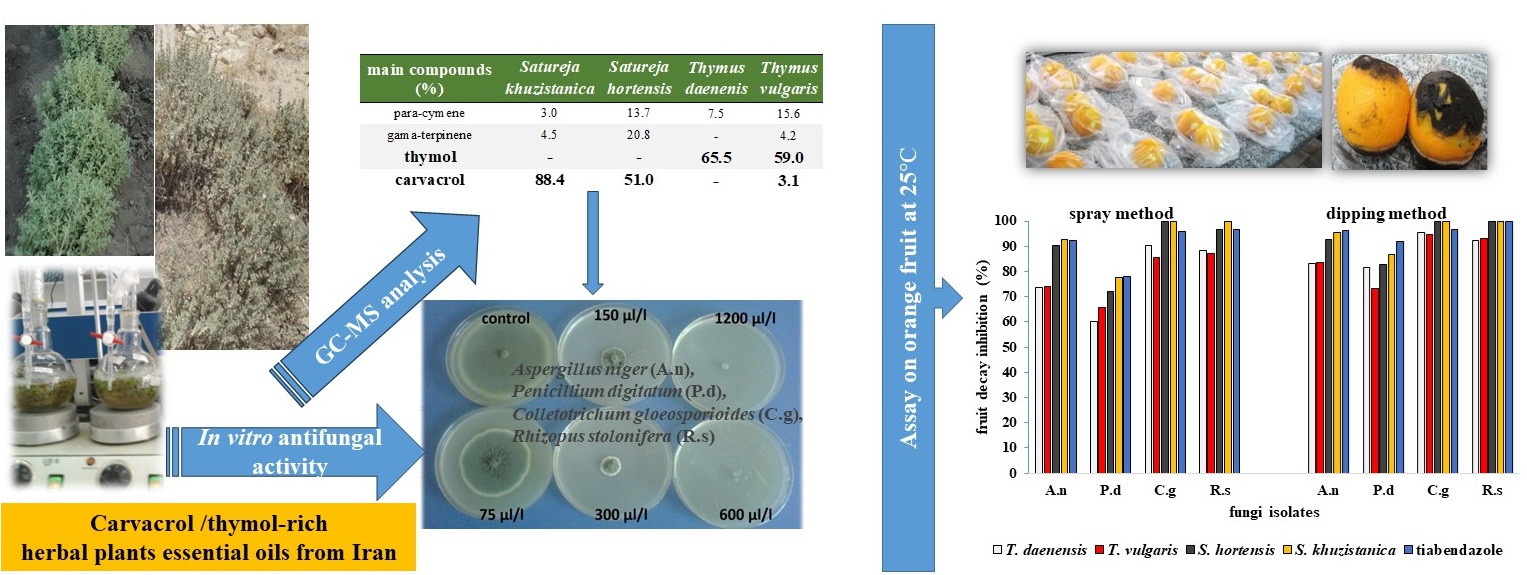The effect of thymol and carvacrol rich-plant essential oils on controlling postharvest decay molds in orange fruit

Published 2024-07-01
Keywords
- Antifungal effect,
- Satureja spp.,
- spoilage,
- Thymus spp.
How to Cite
Copyright (c) 2024 lachin mokhtarnejad, mohsen farzanehj

This work is licensed under a Creative Commons Attribution 4.0 International License.
Abstract
The antifungal activity of essential oils of Thymus daenensis, Thymus vulgaris, Satureja hortensis and Satureja khuzistanica as well as their major compounds were studied against mold decays of orange fruit. According to GC-MS analysis, the major compounds of T. danensis essential oil were thymol (65.5%) and alpha-terpinene (11.9%) whereas T. vulgaris was rich in thymol (59%) and p-cymene (15.6%). Carvacrol (88.4%) in S. khuzistanica oil and carvacrol (51%), gamma-terpinene (20.8%) and p-cymene (13.7%) in S. hortensis oil were charecterized as major compounds. The oil of S. khuzistanica and its major compound carvacrol exhibited the strongest fungicide activity against Penicillium digitatum, Rhizopus stolonifer and Colletotrichum gloeosporioides at 300 µL/L. The results on orange fruits exhibited that the use of S. khuzistanica and S. hortensis EOs as spraying and dipping treatments could considerably reduce spoilages decays in the fruit.




